News
-
 Chemistry
ChemistryTricky element isolated from spent nuclear fuel
A new chemical technique makes it easier to extract the radioactive element americium from used nuclear fuel, potentially paving the way for better ways to reprocess and recycle nuclear waste.
By Andrew Grant -
 Planetary Science
Planetary ScienceMAVEN mission finding clues to Mars’ climate change
Intense solar storms in the past might have stripped Mars of its water as well as much of the rest of its atmosphere.
-
 Climate
ClimateKangaroo farts may not be so eco-friendly after all
Kangaroos fart methane, but not much thanks to the metabolism of gut microbes
-
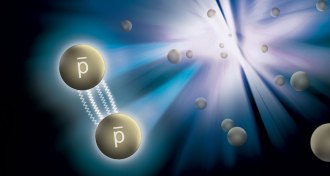 Particle Physics
Particle PhysicsAntiprotons match protons in response to strong nuclear force
The first study of how antiprotons interact with each other reveals yet again that particles of antimatter behave just like their ordinary matter counterparts.
By Andrew Grant -
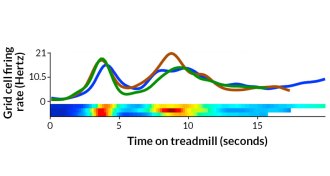 Neuroscience
NeuroscienceBrain’s GPS cells map time and distance, not just location
Brain’s GPS cells map time and distance, too.
-
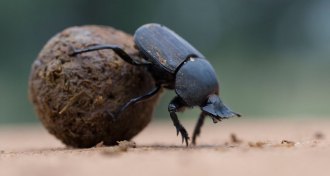 Animals
AnimalsColor of light sets dung beetles straight
Dung beetles may rely on green and ultraviolet colors in the sky to help orient themselves.
By Susan Milius -
 Climate
ClimateEocene temperature spike caused by half as much CO2 as once thought
Revised experiments demonstrate that hot temperatures during the Eocene resulted from lower carbon dioxide concentrations than previously thought.
-
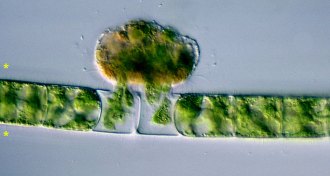 Paleontology
PaleontologyVampire microbes sucked some ancient life dry
Hole-ridden fossils suggest that vampirelike microbes were among the first predators that targeted eukaryotes.
-
 Planetary Science
Planetary SciencePluto’s smaller moons pose mysteries
The four smaller moons of Pluto are finally revealed in images from New Horizons, and might hold some clues to the dwarf planet’s past.
-
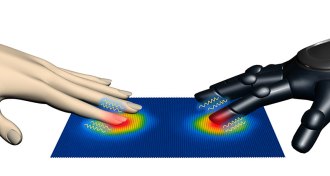 Tech
TechElectronic skin feels the heat, hears the sound
Electronic skin inspired by human fingertips detects texture, pressure, heat and sound.
By Meghan Rosen -
 Oceans
OceansRising temperatures complicate efforts to manage cod fishery
Higher water temperatures in the Gulf of Maine could play a role in Atlantic cod crashes.
-
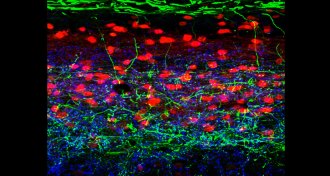 Neuroscience
NeuroscienceItch-busting nerve cells could block urge to scratch
A group of nerve cells in the spinal cord keep mechanical itch in check.